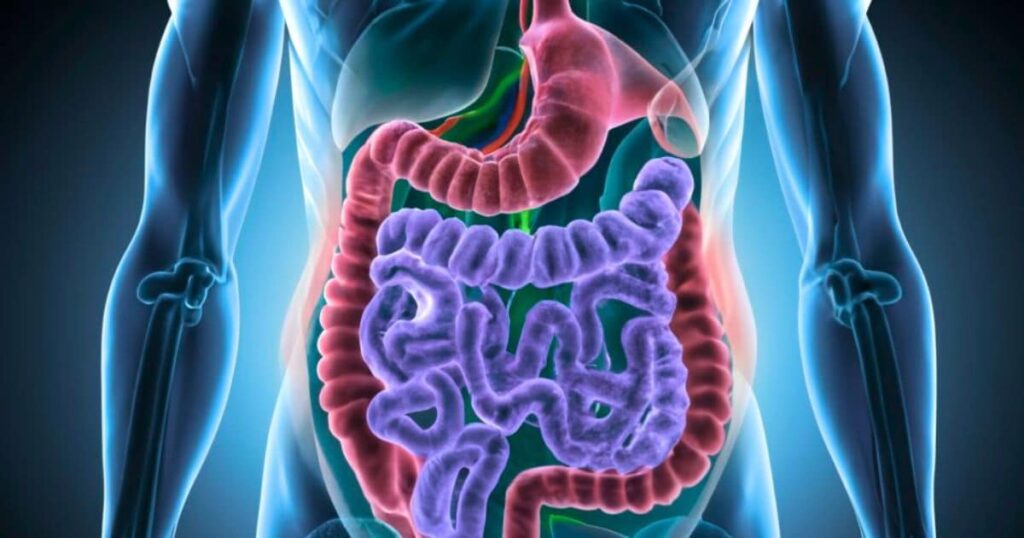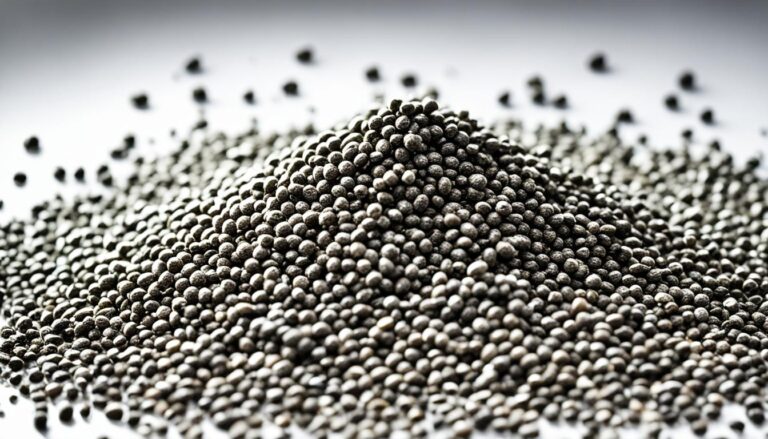Even the phrase “irritable bowel syndrome” (IBS) makes one think of gastrointestinal disorders. Millions of individuals around the world deal with this long-term disease, which brings on a cascade of unpleasant symptoms including gas, bloating, constipation, and diarrhea.
Dietary modifications are typically the most effective weapon in the armory against irritable bowel syndrome (IBS), even if the specific explanation is yet unclear. Learn more about the gut microbiota and how it could benefit patients with irritable bowel syndrome (IBS) by adopting some sensible dietary choices.
A Misstep in Balancing: A Guide to Understanding IBS

Trillions of microorganisms occupy the delicate ecosystem that is our digestive tract. The gut microbiome is a population of bacteria that assists in digestion, absorption of nutrients, and immune system function. In a healthy gut, a delicate balance develops between numerous bacterial strains.
But this balance seems to be broken in irritable bowel syndrome individuals. Factors like stress, inheritance, and certain diets may tilt the scales, resulting in inflammation and an abundance of particular bacteria.
The motility of the stomach, or the flow of food through the digestive system, is interrupted by this imbalance, leading to the symptoms of irritable bowel syndrome. Symptoms of irritable bowel syndrome can include abdominal pain, bloating, diarrhea, and constipation.
These symptoms can be triggered or worsened by certain foods, medications, or stress. Treatment for irritable bowel syndrome often involves managing symptoms through lifestyle changes, dietary modifications, and medication.
By restoring the balance of bacteria in the gut microbiome, individuals with irritable bowel syndrome may experience relief from their symptoms and improved overall digestive health.
Dietary Culprits: Identifying Your IBS Triggers

The first step in treating IBS with diet is knowing which foods exacerbate your symptoms. This may be a specialized investigation endeavor, as there’s no one-size-fits-all strategy. However, several regular situations tend to wreak havoc on IBS sufferers:
Fatty foods, dairy products, caffeine, and carbonated beverages are common triggers for individuals with IBS. Keeping a food diary can help pinpoint which specific foods are causing discomfort, allowing you to make informed decisions about your diet.
Once you have identified your trigger foods, you can work with a healthcare provider or dietitian to create a personalized meal plan that minimizes symptoms and promotes digestive health. Remember, patience and persistence are key when it comes to managing IBS through diet modifications.
FODMAPs:
This acronym stands for fermentable oligosaccharides, disaccharides, monosaccharides, and polyols. These are short-chain carbohydrates contained in varied foods, including wheat, dairy products, certain fruits and vegetables, and artificial sweeteners.
FODMAPs are poorly absorbed by the small intestine and may ferment in the large intestine, leading to gas, bloating, and discomfort. Following a low FODMAP diet can help alleviate symptoms for individuals with irritable bowel syndrome (IBS) or other gastrointestinal issues.
By avoiding high FODMAP foods, individuals can reduce the fermentation process in the gut, thus decreasing gas production and bloating. Working with a healthcare professional or dietitian can help individuals create a balanced and nutritious low FODMAP meal plan that meets their dietary needs.
High-Fiber Foods:
While fiber is normally considered good for gut health, some high-fiber foods, like whole grains, lentils, and certain vegetables, may be problematic for some IBS patients. These foods may bulk up the stool, leading to constipation or worsening the present bloating.
For these individuals, it may be helpful to focus on soluble fiber sources, such as oats, fruits, and certain vegetables, which can help regulate bowel movements without exacerbating symptoms.
It’s important for IBS patients to work with a healthcare provider or dietitian to find the right balance of fiber in their diet to support gut health while minimizing discomfort. Additionally, staying hydrated and incorporating regular physical activity can also aid in managing the symptoms associated with IBS.
Fiery Foods:
The fiery sting of chili peppers may irritate the stomach lining and aggravate IBS symptoms, particularly diarrhea. However, some studies have shown that capsaicin, the compound responsible for the heat in chili peppers, may actually have anti-inflammatory properties and could potentially benefit those with IBS.
It is important for individuals with IBS to listen to their bodies and pay attention to how certain foods, like spicy foods, affect their symptoms. Experimenting with different levels of spice and monitoring the results can help determine if consuming fiery foods is tolerable for those with IBS.
Caffeine and alcohol:
These beverages may stimulate intestinal motility and worsen diarrhea. It is best to limit or avoid consuming caffeine and alcohol if you are experiencing diarrhea, as they can further irritate your digestive system.
Instead, opt for clear fluids like water, herbal teas, or electrolyte-rich beverages to help replenish fluids lost through diarrhea. It is also important to listen to your body and rest when needed to allow your digestive system to recover.
Fatty Foods:
Fatty meals may slow down digestion and contribute to bloating and discomfort. It is important to limit consumption of fried foods, processed meats, and high-fat dairy products to avoid these issues. Instead, opt for healthier fats found in nuts, seeds, avocados, and fatty fish like salmon. By making these simple switches, you can support your digestion and overall health.
Dietary Strategies for IBS Relief: A Multi-Pronged Approach
Once you’ve established your dietary triggers, it’s crucial to develop a precise approach to managing your IBS. Here are some effective strategies: First, consider keeping a food journal to track your symptoms and identify patterns. This can help you pinpoint which foods may be causing flare-ups.

Additionally, practicing stress management techniques such as yoga or meditation can help reduce IBS symptoms. Finally, make sure to stay hydrated and incorporate regular exercise into your routine to keep your digestive system functioning properly. By implementing these strategies, you can take control of your IBS and improve your quality of life.
The Low-FODMAP Diet:
This elimination diet entails avoiding high-FODMAP foods for a period of 4-6 weeks, followed by a gradual reintroduction to identify individual triggers. This may be a game-changer for many IBS sufferers, offering great symptom alleviation.
Many people find that once they have identified their trigger foods, they are able to manage their IBS symptoms much more effectively. By following the low-FODMAP diet, individuals can regain control over their digestive health and improve their overall quality of life. It is important to work with a healthcare provider or dietitian when starting this diet to ensure proper guidance and support.
Fiber Management:
Aim for a moderate diet of soluble fiber (found in fruits, cereals, and psyllium husk), as it may help regulate bowel movements and soften stool. However, be aware of insoluble fiber (found in wheat bran and other vegetables) that may exacerbate bloating. Introduce fiber gradually to allow your stomach to adjust.
Start by incorporating small amounts of fiber-rich foods into your meals and gradually increasing the quantity over time. This will give your digestive system a chance to adapt and reduce the likelihood of bloating or discomfort.
Remember to stay hydrated throughout the day to help fiber move smoothly through your system and maintain regularity. By making these adjustments, you can enjoy the benefits of a balanced fiber intake without experiencing negative side effects.
Smaller, more frequent meals:
Opting for smaller, more frequent meals throughout the day helps ease the digestive strain compared to a few large meals. This may help regulate gastric motility and minimize bloating.
It also helps to maintain stable blood sugar levels and prevent energy crashes throughout the day. By eating smaller meals more frequently, you can keep your metabolism active and avoid overeating at any one meal. Additionally, this approach can help with portion control and prevent excess calorie consumption.
Stay Hydrated:
Adequate water intake keeps your digestive system running regularly. Aim for at least 8 glasses of water daily. Drinking water also helps to maintain healthy skin and can even improve your mood and energy levels. Carry a reusable water bottle with you throughout the day to ensure you are staying hydrated. Remember, even mild dehydration can lead to headaches, fatigue, and difficulty concentrating.
Listen to your body:
Pay close attention to how varied meals affect your symptoms. Keep a food diary to track your meals and any subsequent stomach troubles. This might help you spot patterns and alter your dietary plan. By identifying trigger foods, you can make informed decisions about what to include or exclude from your diet.
Consulting with a healthcare professional or nutritionist can also provide valuable insight into creating a meal plan that works best for your body. Remember, everyone is different, so what works for one person may not work for another. Taking the time to understand how your body responds to different foods will ultimately lead to a happier and healthier you.
Beyond Diet: A Holistic Approach to IBS Management
While diet plays a key role in IBS treatment, a full approach is recommended for optimum relief. Here are some other tips:
Stress Management:
Stress is a known factor for IBS symptoms. Relaxation methods like yoga, meditation, and deep breathing may help manage stress and increase gut health. Regular exercise can also play a key role in reducing stress levels and improving overall well-being.
Additionally, maintaining a healthy diet, staying hydrated, and getting enough sleep are important factors in managing stress and promoting gut health. It is important to find a balance between work and relaxation to keep stress at bay and prevent IBS symptoms from worsening.
Regular activity:
Regular physical activity may not only boost overall health but also increase intestinal motility and decrease constipation. Staying active can help stimulate the muscles in the digestive tract, promote regular bowel movements, and prevent discomfort.
Additionally, exercise has been shown to reduce stress levels, which can also contribute to improved digestion. Incorporating a variety of physical activities into your routine can have a positive impact on your gastrointestinal health and overall well-being.
Probiotics:
These live bacteria supplements may help restore the balance of gut flora and lessen IBS symptoms. However, it’s crucial to contact your doctor before commencing any probiotic supplement.
Your doctor can help you choose the right probiotic strain for your specific needs and ensure that it won’t interact with any other medications you may be taking. Additionally, they can monitor your progress and make adjustments as needed to optimize the benefits of probiotics for your gut health. Remember, always consult with a healthcare professional before starting any new supplement regimen.
Sleep Hygiene:
Aim for 7-8 hours of adequate sleep each night. Adequate sleep enhances overall well-being and may indirectly aid gut health.
Poor sleep habits can disrupt the body’s internal clock, leading to digestive issues and a weakened immune system. In order to improve sleep hygiene, it is important to establish a consistent bedtime routine and create a calming sleep environment.
Additionally, limiting screen time before bed and avoiding caffeine in the evening can also contribute to better sleep quality. Ultimately, prioritizing adequate sleep is essential for promoting optimal gut health and overall wellness.
Conclusion
Living with IBS may be stressful, but dietary tweaks and a holistic approach may substantially improve your quality of life. Remember, the road to IBS therapy is a unique one. Be patient with yourself as you navigate through different treatment options and find what works best for you.
It may take time and trial and error, but finding the right combination of lifestyle changes, medications, and stress management techniques can make a significant difference in managing your symptoms and improving your overall well-being.
Don’t be afraid to seek support from healthcare professionals, support groups, or loved ones during this journey. Remember, you are not alone in your struggle with IBS.
FAQs: Taming the Grumbling Belly: A Guide to Dietary Changes for IBS Relief
Here are some regularly asked questions that augment the information offered in the main article:
1. How Long Does It Take to See Results with Dietary Changes for IBS?
The duration of finding relief from dietary modifications for IBS varies. Some individuals may exhibit results within a few weeks, while others might take several months. Consistency is key.
Tracking your food intake and symptoms in a notebook could help you spot patterns and adjust your approach as necessary. It’s important to remember that everyone’s body is different, so what works for one person may not work for another. Patience and persistence are crucial when it comes to finding the right dietary modifications to manage IBS symptoms.
Consulting with a healthcare provider or a registered dietitian can also provide valuable guidance and support throughout this process. Remember, making small changes over time can lead to significant improvements in your overall well-being.
2. Are there any foods I should always include in my IBS diet?
There isn’t a single “IBS diet” that works for everyone. However, focusing on entire, unprocessed meals is often effective. Low-FODMAP fruits like berries, grapes, and kiwi; vegetables like carrots, zucchini, and leafy greens; and lean protein sources like chicken, fish, and legumes (introduced gradually) may constitute the cornerstone of a balanced IBS diet.
In addition to these foods, incorporating whole grains like quinoa, brown rice, and oats can provide fiber without causing digestive distress. It’s also important to stay hydrated by drinking plenty of water throughout the day. Avoiding trigger foods like dairy, gluten, and caffeine can also help manage symptoms.
Listening to your body and keeping a food journal can help identify which foods worsen or alleviate your IBS symptoms. Working with a healthcare provider or dietitian can provide personalized guidance and support in creating a sustainable and effective IBS diet plan.
3. What if the Low-FODMAP Diet Doesn’t Work for Me?
If the low-FODMAP diet doesn’t deliver sufficient alleviation, consult a healthcare practitioner or registered nutritionist trained in gut health. They may help you explore alternative dietary choices, like a gluten-free diet or a low-carb diet, appropriate to your individual circumstances.
They can also provide guidance on specific food triggers that may be causing your symptoms and recommend further testing if necessary. By working closely with a professional, you can develop a personalized nutrition plan that addresses your digestive issues and helps you feel your best. Don’t hesitate to seek expert advice if you are struggling to find relief with the low-FODMAP diet.
4. Are There Any Supplements That Can Help Manage IBS?
Certain supplements, notably probiotics and peppermint oil, have shown promise for decreasing IBS symptoms. However, it’s crucial to visit your doctor before taking any supplements, as they can conflict with medicines or have bad consequences.
Your doctor can provide guidance on which supplements may be beneficial for you and ensure that they won’t interfere with any current treatments or medications you are taking. It’s always best to consult with a healthcare professional before making any changes to your treatment plan.
Remember, what works for one person may not work for another, so personalized advice is key when considering supplements for managing IBS symptoms.
5. When Should I See a Doctor About My IBS?
If dietary tweaks and lifestyle improvements don’t help your IBS symptoms, or if you experience rectal bleeding, unexplained weight loss, or persistent fever, plan an appointment with your doctor.
These could be signs of numerous underlying illnesses that require more examination. It’s important to address these symptoms promptly to rule out any serious conditions and receive proper treatment.
Your doctor may recommend further testing or refer you to a specialist for a more thorough evaluation. Don’t ignore these warning signs and seek medical attention as soon as possible for peace of mind and better health outcomes.
Remember:
This information is provided for educational purposes only and should not be a substitute for specialist medical advice. Always consult a competent healthcare practitioner for diagnostic and treatment options tailored to your situation. yourself, experiment with different meal options, and find what works best for you. Don’ t be afraid to ask questions and seek out second opinions if needed.
Your health is important, and it’s crucial to advocate for yourself and make informed decisions about your care. Remember that every individual is unique, and what works for one person may not necessarily work for another. Trust your instincts and prioritize your well-being above all else.







